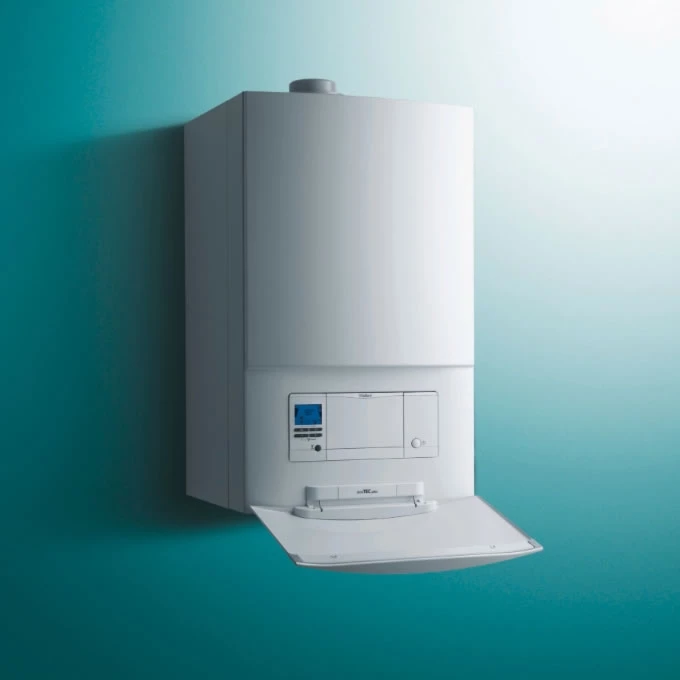The most common faults of Vaillant combi boilers
Key takeaways:
- Regular maintenance is crucial for preventing common Vaillant boiler faults
- Understanding these issues can help you respond quickly and effectively
- Many problems can be resolved without calling a professional, saving you time and money
- Keeping your tenants informed about boiler care can reduce callouts and complaints
As a UK residential landlord, you’re likely familiar with Vaillant combi boilers. They’re a popular choice for many properties due to their efficiency and reliability. However, like all appliances, they can develop faults over time. Understanding these common issues can help you maintain your properties more effectively and keep your tenants happy.
Popular Vaillant combi boiler models
Before we dive into common faults, let’s quickly review some of the most popular Vaillant combi boiler models you’re likely to encounter in your properties:
- ecoTEC plus: Models include 825, 832, 835, 838, and 938
- ecoTEC pro: Models include 24, 28, and 30
- ecoFIT pure: Models include 825, 830, and 835
- ecoTEC exclusive: Models include 835 and 843
- ecoTEC plus 48kW and 64kW: Larger models for bigger properties
These models are known for their efficiency and reliability, but they can still experience issues over time. Knowing which model you’re dealing with can help you troubleshoot more effectively and communicate better with heating engineers when necessary.
In this guide, we’ll explore the most frequent problems you might encounter with Vaillant combi boilers, how to identify them, and what steps you can take to resolve them. We’ll also provide tips on preventative maintenance to help you avoid these issues in the first place.
1. Low boiler pressure
One of the most common issues you’ll face with Vaillant combi boilers is low pressure. This can cause the boiler to shut down or operate inefficiently, leading to tenant complaints about lack of heating or hot water.
Identifying the problem
You’ll typically notice this issue when the pressure gauge on the front of the boiler drops below 1 bar. Some Vaillant models will display an error code, usually F.22 or F.23, to indicate low pressure.
Causes of low pressure
There are several reasons why your boiler’s pressure might drop:
- A leak in the system
- Recently bled radiators
- A faulty pressure relief valve
Resolving the issue
In many cases, you can resolve low pressure by repressurising the system yourself. Here’s a quick guide:
- Locate the filling loop (usually a silver flexi hose with two valves)
- Open both valves to allow water into the system
- Watch the pressure gauge and close the valves when it reaches 1.5 bar
- Bleed any radiators if necessary
If the pressure drops again quickly, you may have a leak that requires professional attention.

2. Frozen condensate pipe
During cold snaps, the condensate pipe can freeze, causing the boiler to shut down. This is a common issue in winter and can leave your tenants without heating when they need it most.
Identifying the problem
Vaillant boilers typically display the error code F.28 or F.29 when the condensate pipe is frozen. Your tenants might also report a gurgling sound coming from the boiler.
Causes of a frozen condensate pipe
This issue occurs when the outside temperature drops below freezing, causing the water in the condensate pipe to freeze and block the system.
Resolving the issue
You can often thaw a frozen condensate pipe without professional help:
- Locate the external condensate pipe (usually a white or grey plastic pipe)
- Pour warm (not boiling) water over the pipe to thaw it
- Reset the boiler once the pipe is clear
To prevent future freezing, consider insulating the external portion of the condensate pipe.
3. Ignition failure
Ignition failure is another common issue that can leave your tenants without heating or hot water. It occurs when the boiler fails to light the gas in the combustion chamber.
Identifying the problem
Vaillant boilers usually display the error code F.28 or F.29 for ignition failure. You might also hear clicking sounds as the boiler tries to ignite.
Causes of ignition failure
Several factors can lead to ignition failure:
- Low gas pressure
- Faulty ignition lead
- Blocked gas valve
- Faulty printed circuit board (PCB)
Resolving the issue
While some causes of ignition failure require professional attention, you can try these steps first:
- Check the gas supply is on and the meter is topped up (if prepayment)
- Reset the boiler by pressing the reset button
- If the problem persists, call a Gas Safe registered engineer

4. Circulation pump failure
The circulation pump is responsible for moving hot water around your heating system. When it fails, your tenants may experience cold spots in radiators or a complete loss of heating.
Identifying the problem
Signs of circulation pump failure include:
- Noisy operation
- Error code F.74 or F.75 on Vaillant boilers
- Radiators cold at the bottom but hot at the top
Causes of pump failure
Pump failure can be due to:
- Wear and tear over time
- Debris in the system blocking the pump
- Electrical faults
Resolving the issue
While pump replacement often requires a professional, you can try these steps:
- Bleed the pump to remove any air locks
- Check for debris by removing and cleaning the pump
- If these steps don’t work, call a heating engineer for replacement
5. Faulty diverter valve
The diverter valve in a Vaillant combi boiler controls the flow of hot water between the heating and hot water circuits. When it fails, you might have hot water but no heating, or vice versa.
Identifying the problem
Common signs of a faulty diverter valve include:
- Hot water works, but radiators stay cold (or the reverse)
- Error code F.20 on Vaillant boilers
- Inconsistent hot water temperature
Causes of diverter valve problems
Diverter valves can fail due to:
- Normal wear and tear
- Limescale build-up
- Mechanical failure
Resolving the issue
While replacing a diverter valve is a job for a professional, you can try these steps:
- Reset the boiler
- Run hot water taps and check if radiators heat up
- If problems persist, call a Gas Safe registered engineer
6. Leaks
Leaks in your Vaillant combi boiler can lead to various issues, from low pressure to water damage in your property. Catching leaks early is crucial to prevent more serious problems.
Identifying the problem
Signs of a leak include:
- Visible water around the boiler
- Frequent pressure drops
- Damp patches on walls or ceilings near the boiler
Causes of leaks
Leaks can occur due to:
- Corroded pipes or components
- Loose connections
- Faulty seals or gaskets
Resolving the issue
While minor leaks might be fixable with tightening connections, most leaks require professional attention:
- Turn off the water supply to the boiler
- Check for visible leaks and tighten any loose connections
- If you can’t identify or fix the leak, call a Gas Safe registered engineer
7. Fluctuating water temperature
Inconsistent hot water temperature can be frustrating for your tenants and is often a sign of underlying issues with your Vaillant combi boiler.
Identifying the problem
Your tenants might report:
- Water temperature changing suddenly during use
- Hot water running cold after a short time
- Inconsistent shower temperature
Causes of temperature fluctuations
Several factors can cause this issue:
- Faulty thermistor
- Scale build-up in the heat exchanger
- Problems with the diverter valve
- Incorrect boiler settings
Resolving the issue
While some causes require professional attention, you can try these steps:
- Check and adjust the boiler’s temperature settings
- Descale the system if you’re in a hard water area
- If problems persist, call a heating engineer to check components
8. Noisy operation
A noisy boiler can be disruptive for your tenants and is often a sign that something’s not quite right with your Vaillant combi boiler.
Identifying the problem
Different noises can indicate different issues:
- Kettling or whistling sounds
- Gurgling or banging noises
- Humming or vibrating
Causes of noisy operation
Noisy operation can be due to:
- Limescale build-up in the heat exchanger
- Air in the system
- Faulty pump
- Worn out components
Resolving the issue
Some noise issues can be resolved without professional help:
- Bleed radiators to remove air from the system
- Check the boiler pressure and top up if necessary
- For persistent noises, especially kettling, call a Gas Safe engineer
Key takeaways
- Regular maintenance is crucial for preventing common Vaillant boiler faults
- Many issues, like low pressure and frozen condensate pipes, can be resolved without professional help
- For more complex problems, always call a Gas Safe registered engineer
- Educating your tenants about basic boiler care can reduce callouts and complaints
By understanding these common faults and how to address them, you can maintain your Vaillant combi boilers more effectively, reducing downtime and keeping your tenants happy. Remember, while some issues can be resolved DIY, always prioritise safety and call in a professional when in doubt.
Frequently Asked Questions
- How often should I service my Vaillant combi boiler?
Annual servicing is recommended to maintain efficiency and catch potential issues early. - Can I reset my Vaillant boiler myself?
Yes, most Vaillant boilers have a reset button. Press and hold it for a few seconds to reset the boiler. - What does the pressure gauge on my Vaillant boiler should read?
The ideal pressure is between 1 and 1.5 bar when the system is cold. - How can I prevent my condensate pipe from freezing?
Insulating the external portion of the pipe can help prevent freezing in cold weather. - Is it normal for my Vaillant boiler to make noise?
Some noise is normal, but loud or unusual noises could indicate a problem that needs attention.




